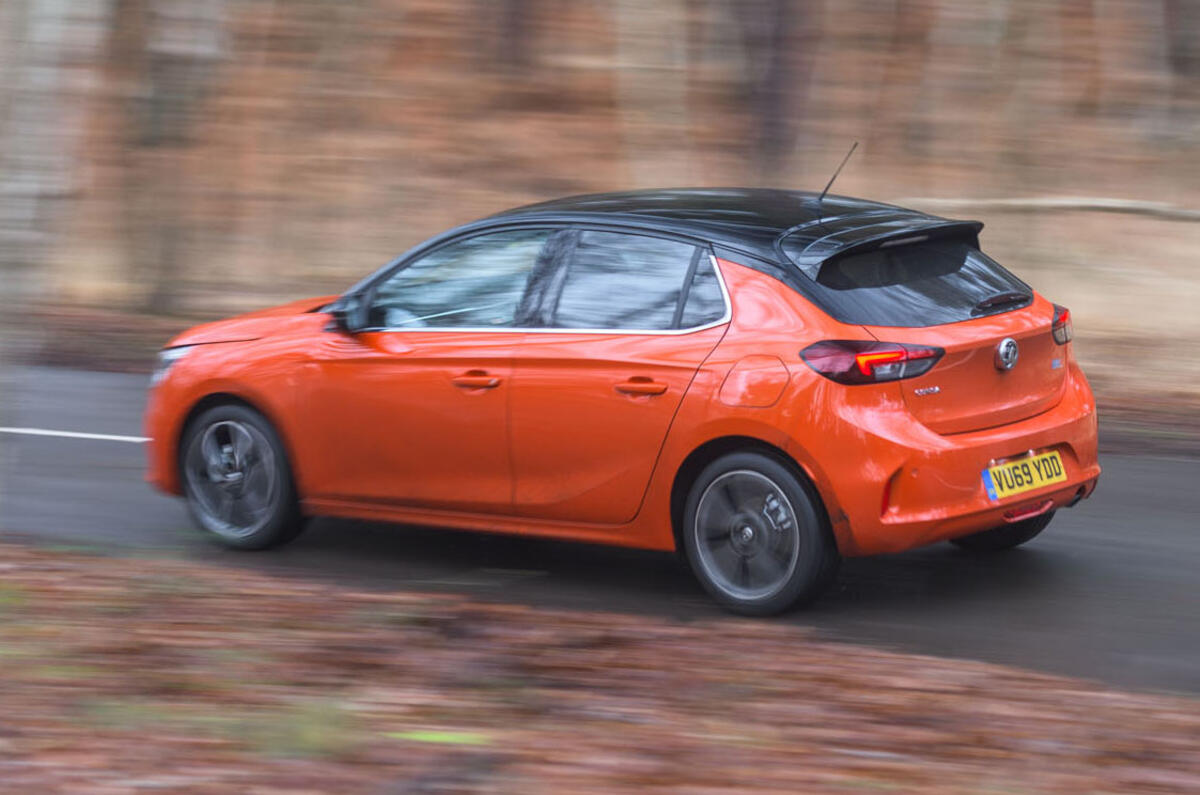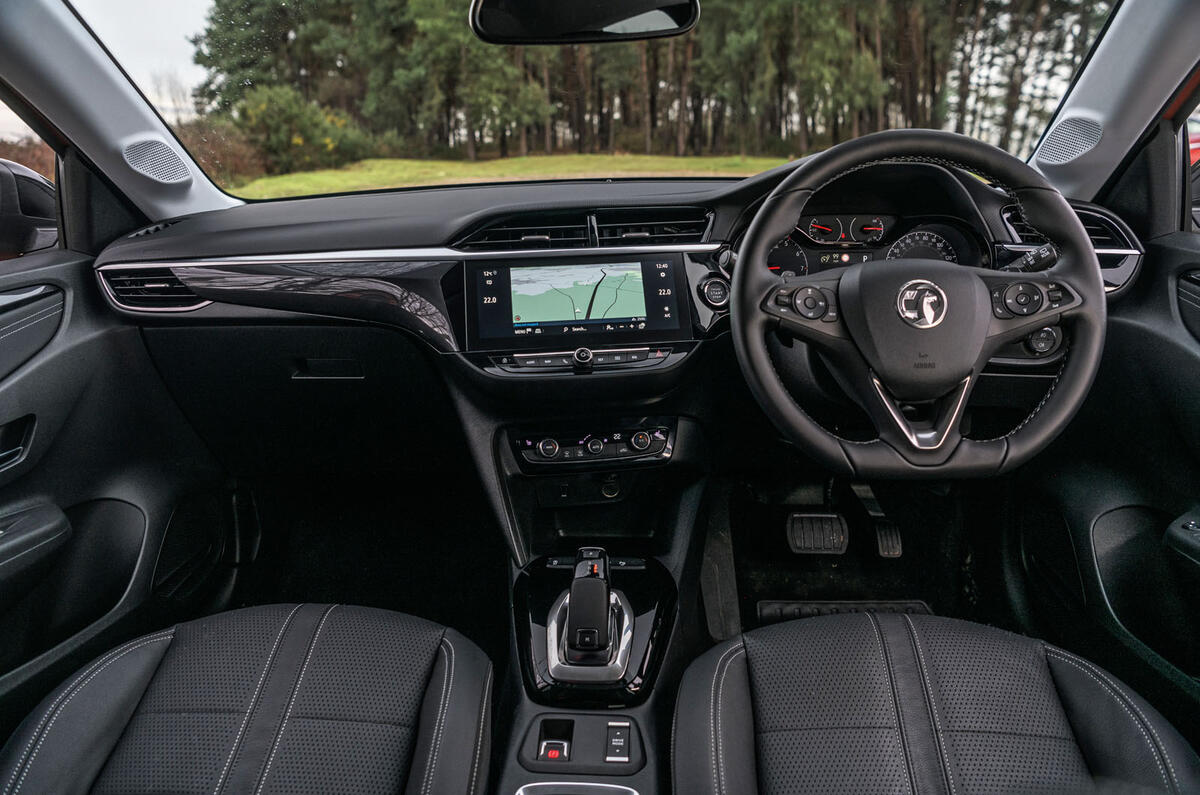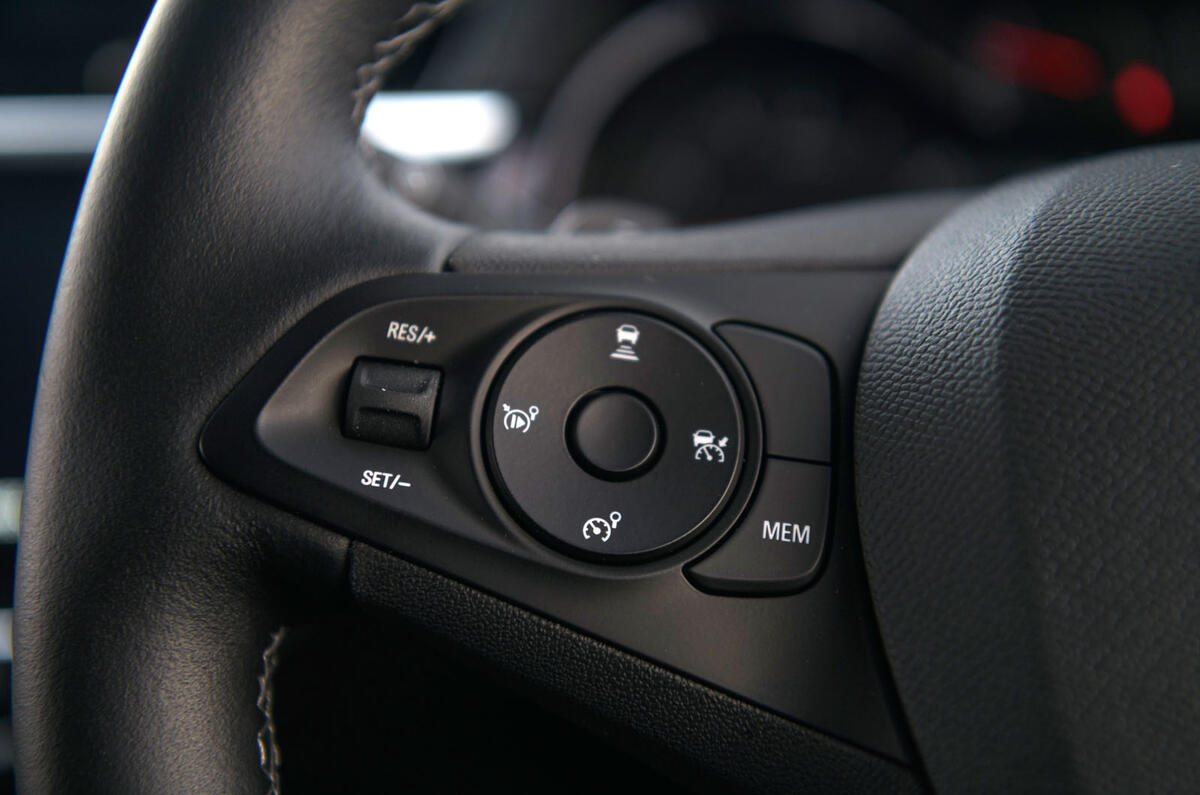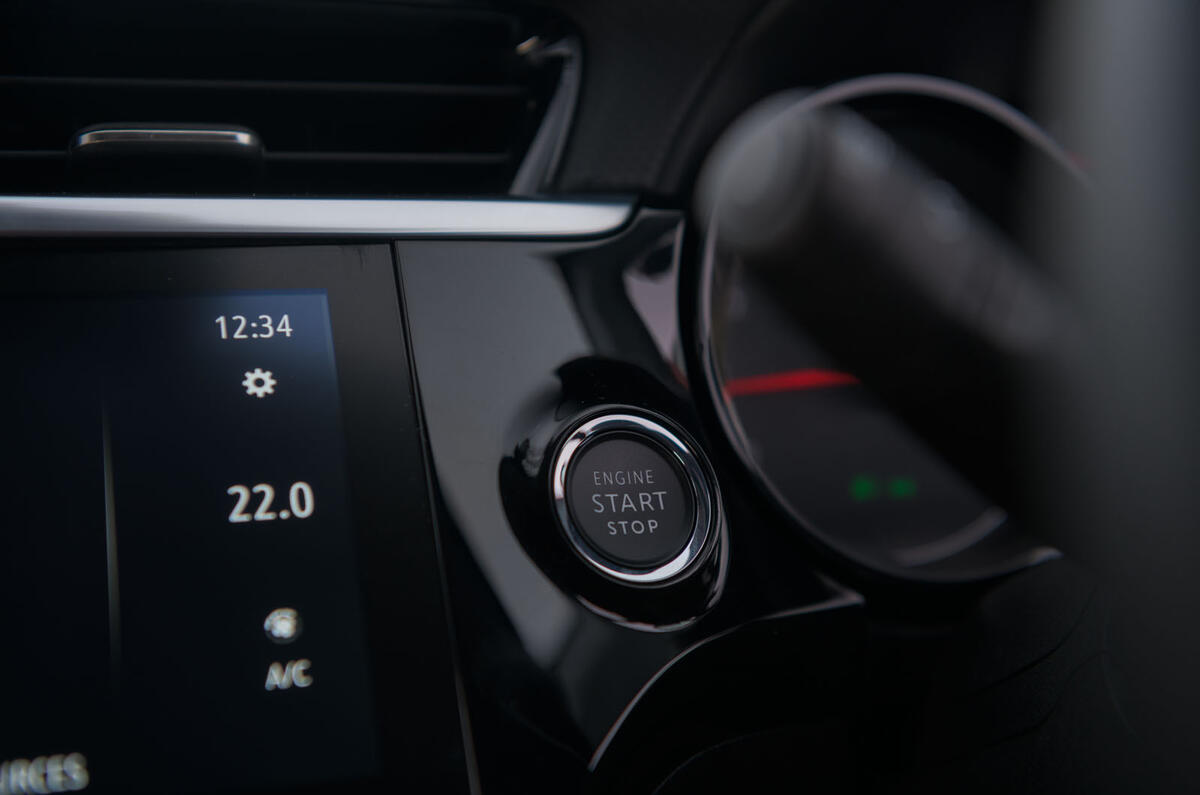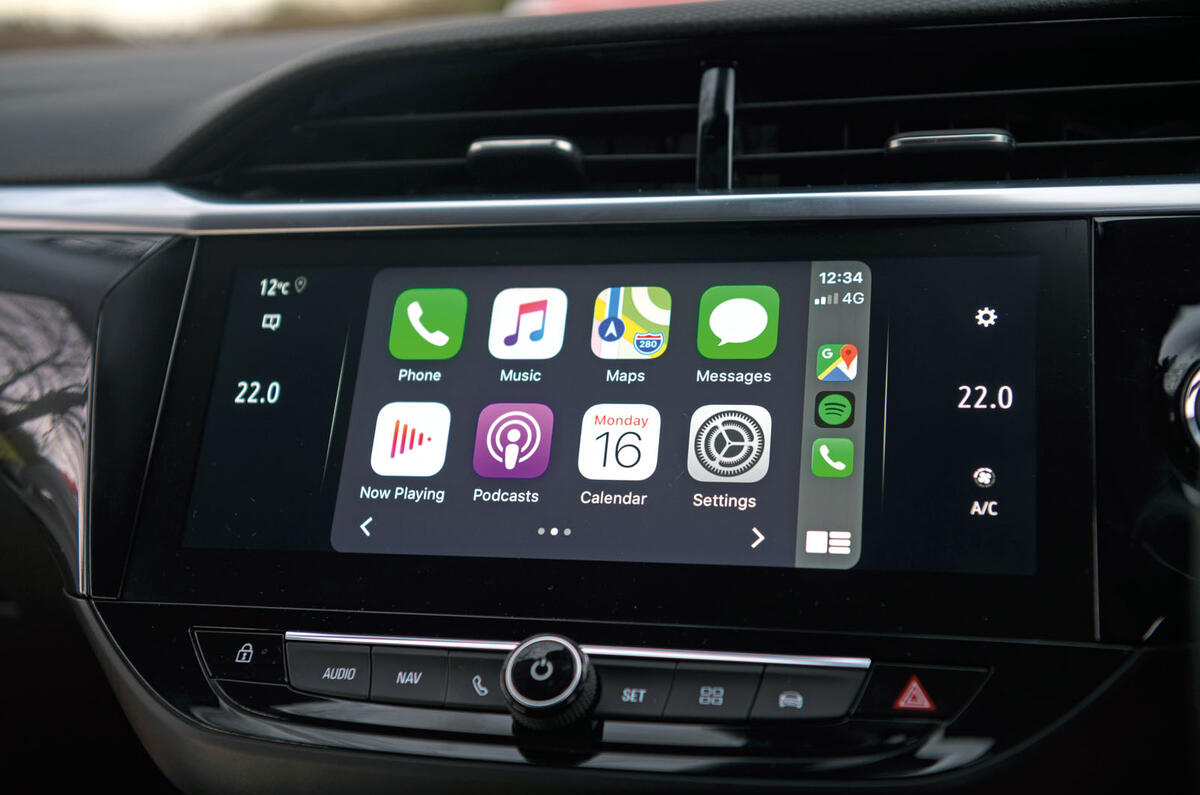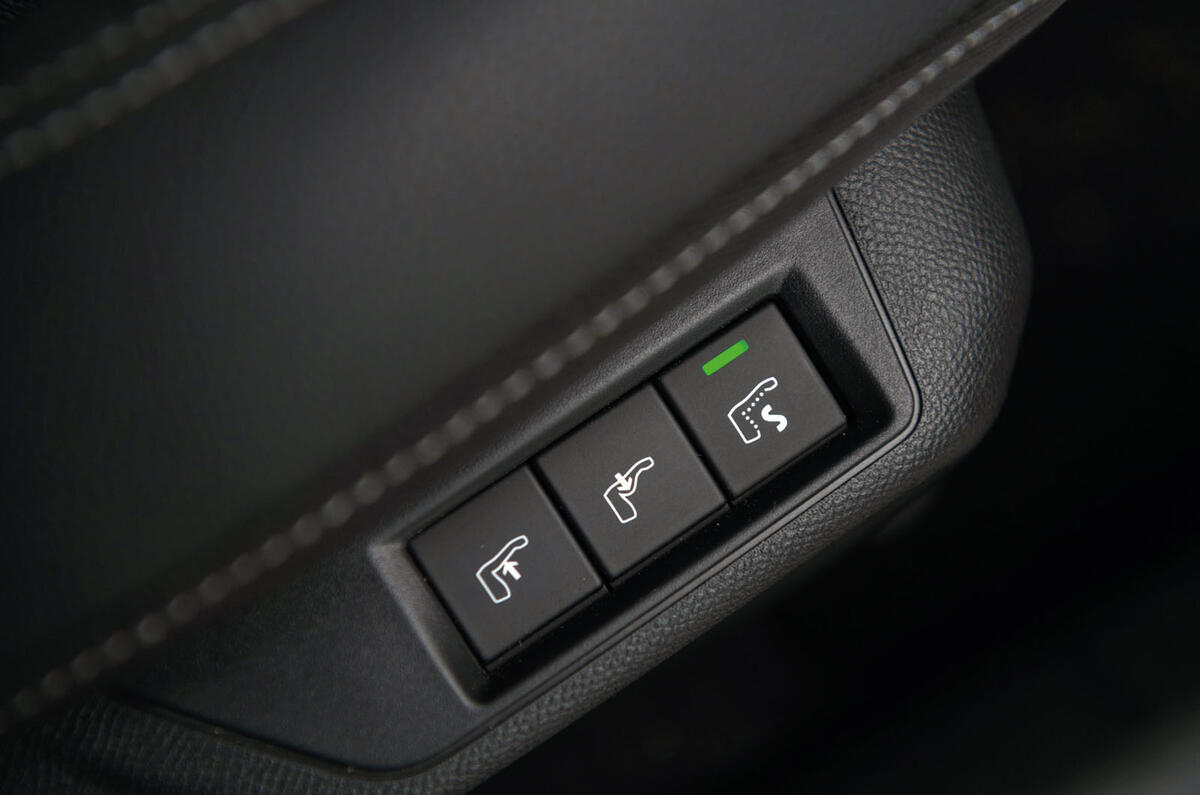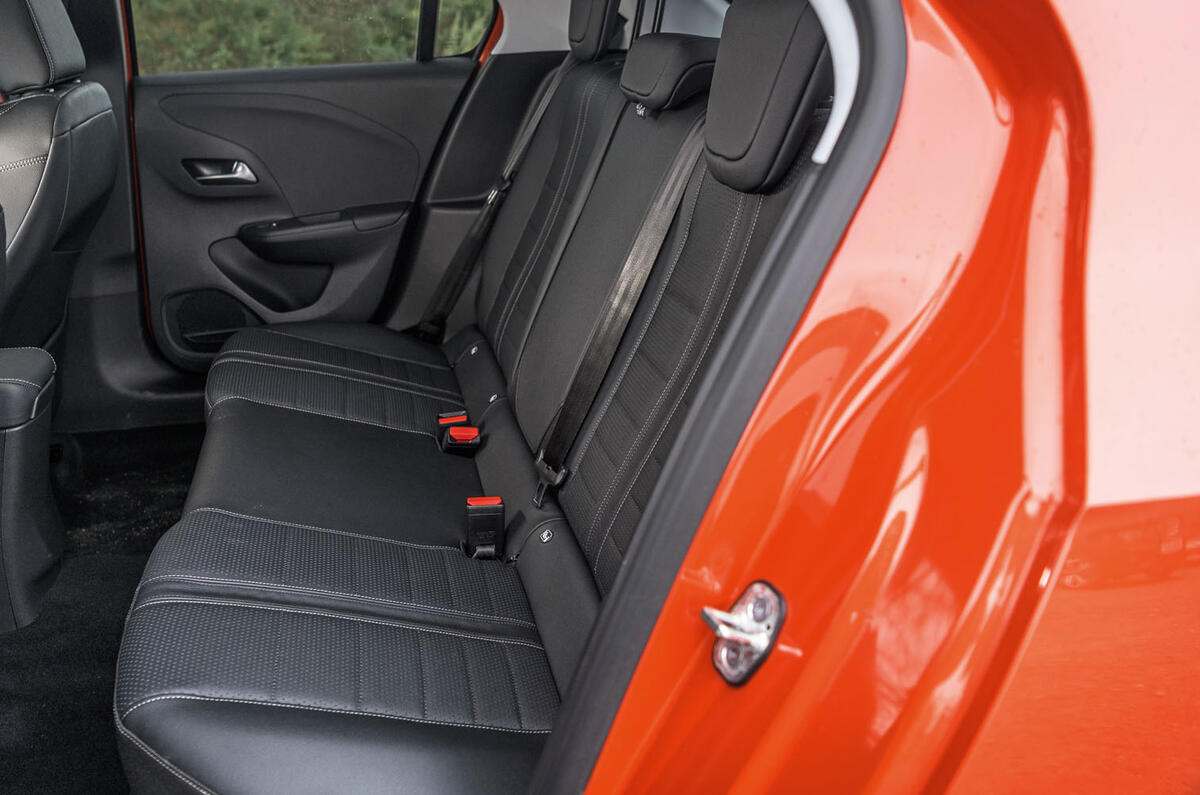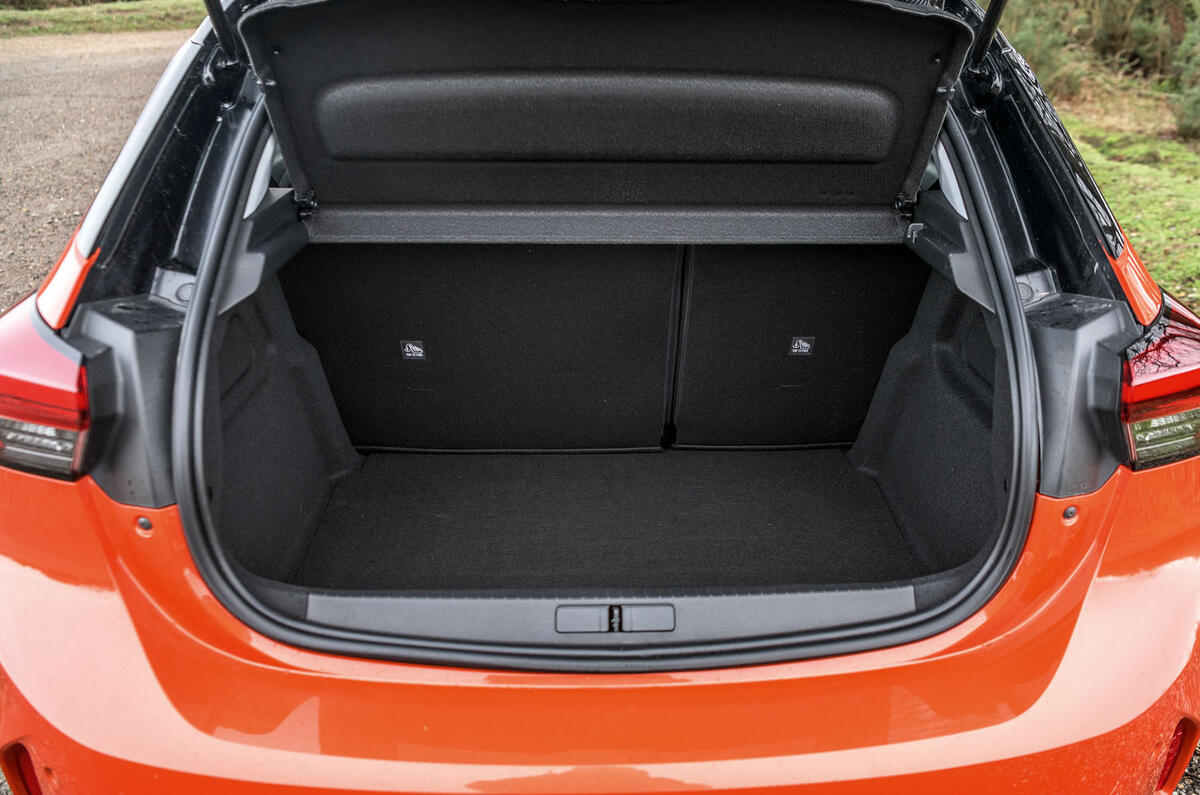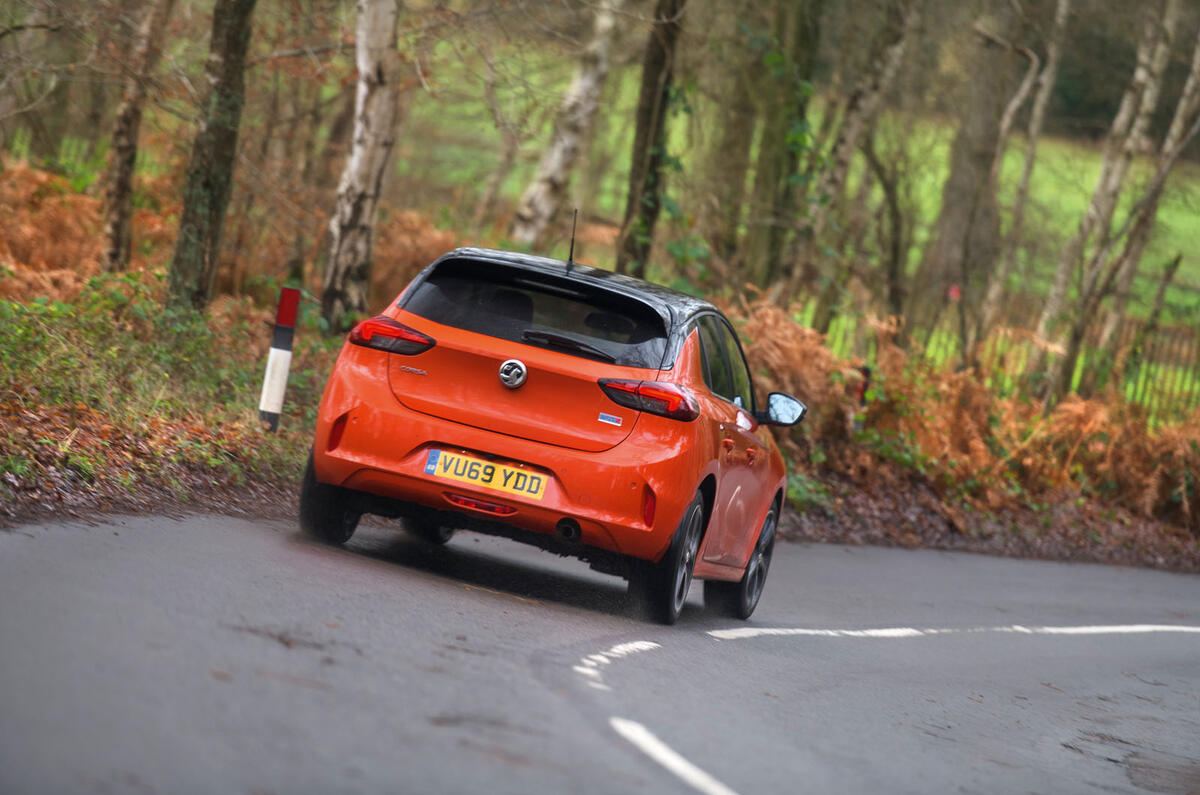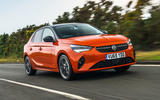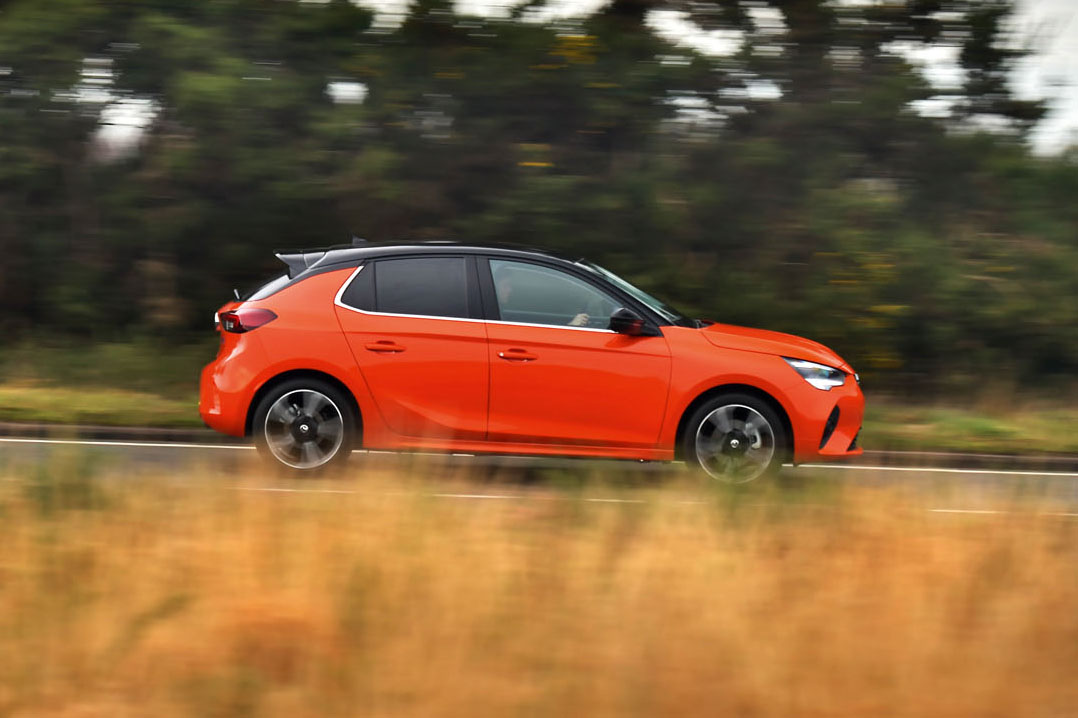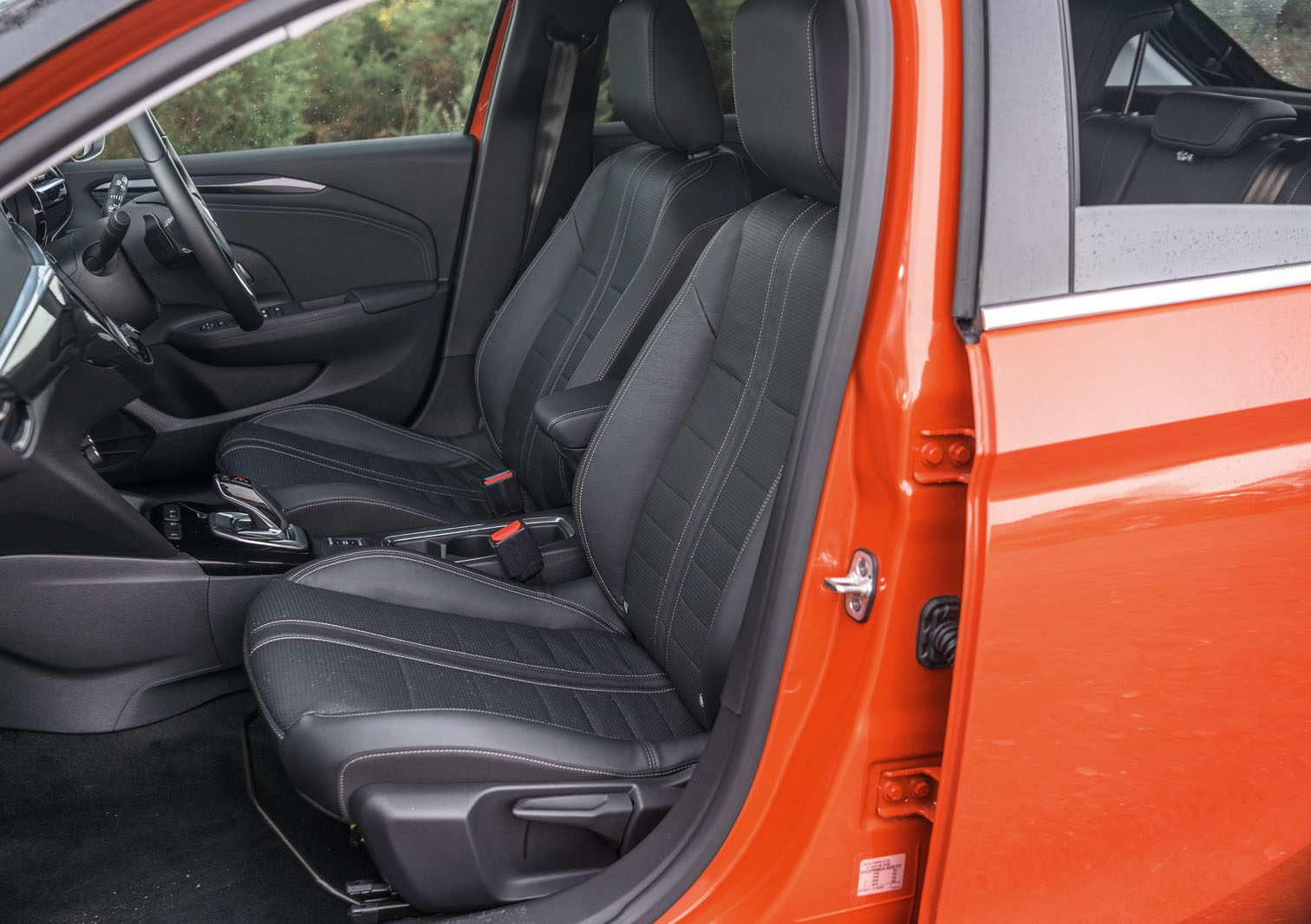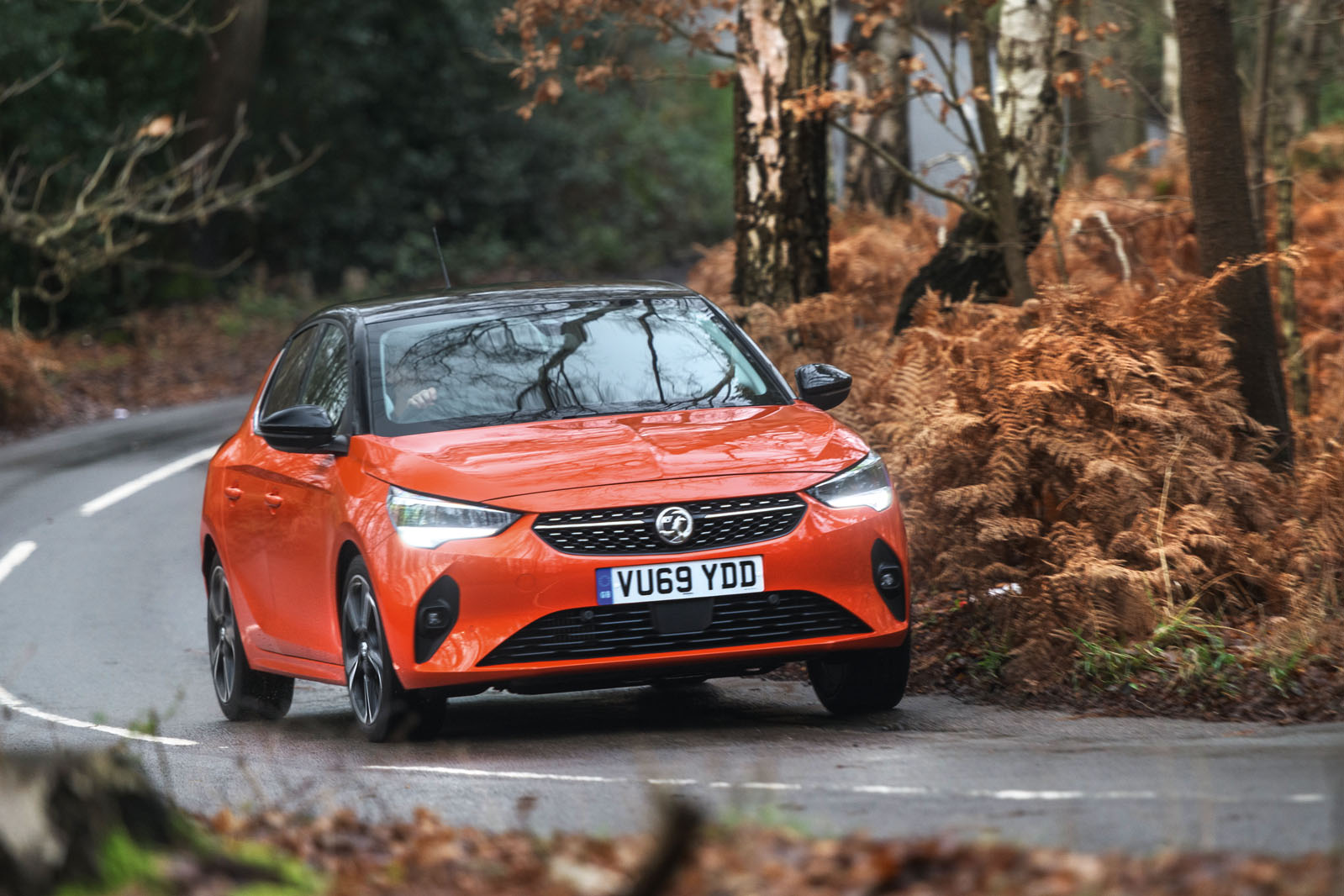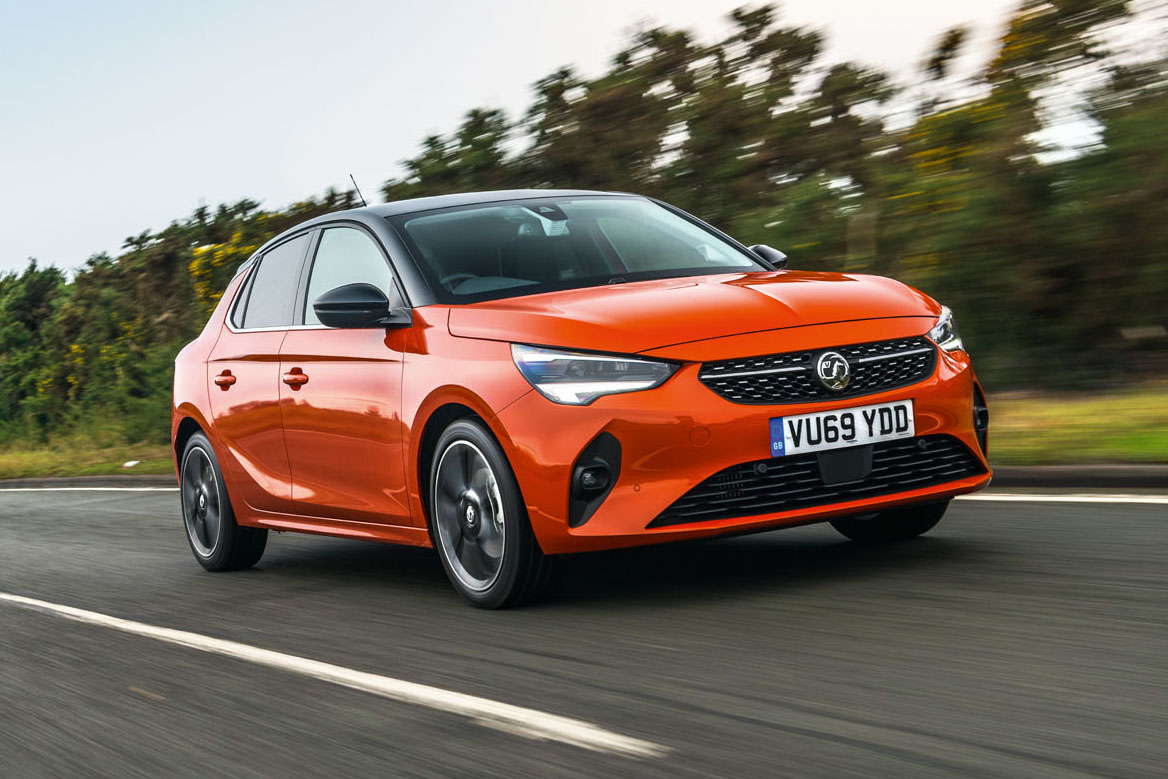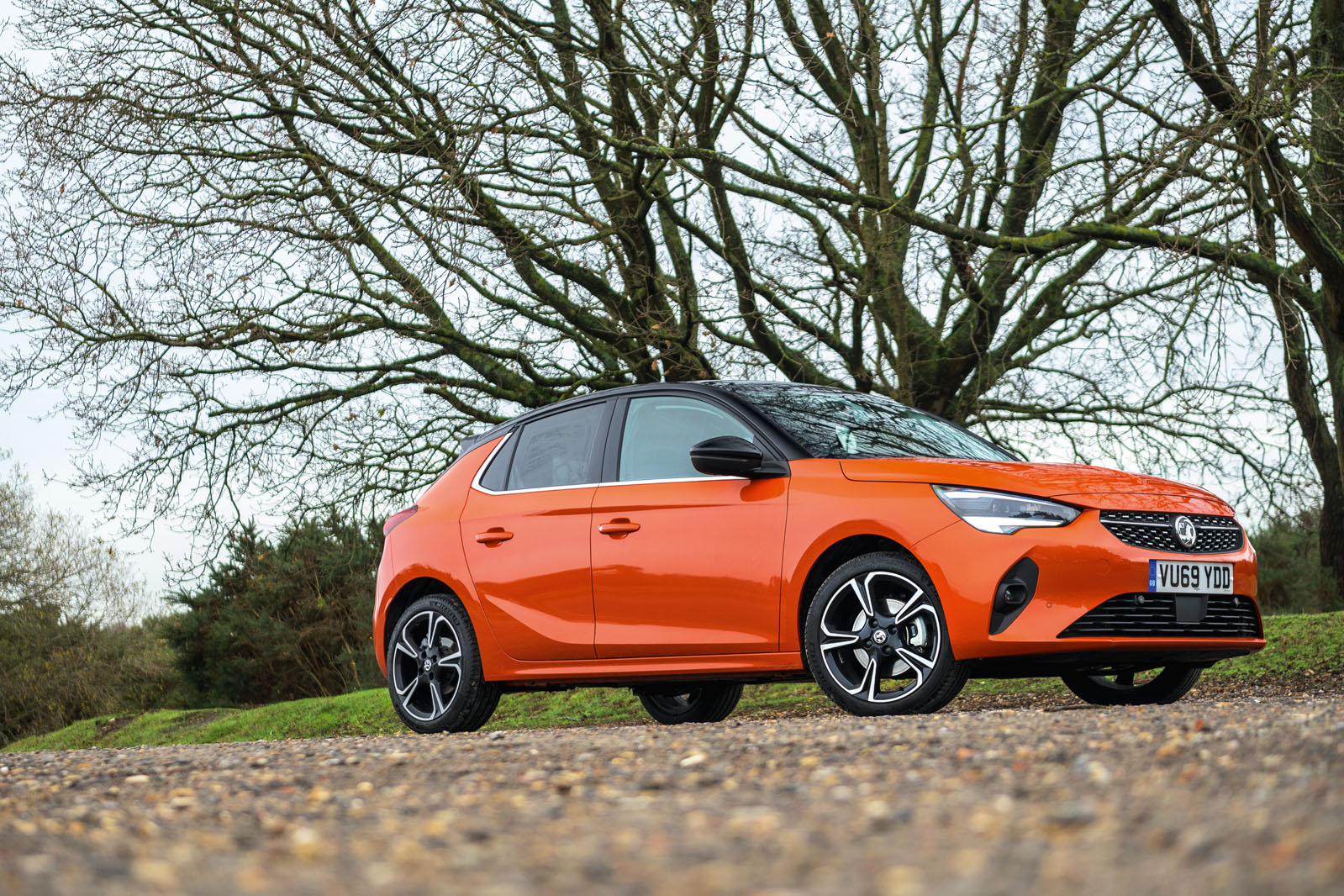The shift in design proportions is as obvious from within the Vauxhall Corsa’s cabin as it is from without. Having been, for a couple of previous generations at least, a functionality-first supermini with a slightly raised roofline and hip point (both intended to squeeze extra usable cabin space into a small overall footprint), this new cabin is lower of profile, less perched of driving position and quite plainly less space efficient than its predecessor. That last point is somewhat regrettably so, in ways that we’ll come to describe and that fly in the face of its makers claims.
This Vauxhall has undoubtedly progressed for perceived quality and on technological content. It will take a while for owners familiar with the old car to get used to the lower driving position and slightly tighter door apertures of the new one. Once inside, they may also notice the shallower footwells and more distantly removed fascia that both betray the adoption of PSA’s platform architecture here.
But they will also notice the liberal adoption of high-gloss black and satin chrome trim around the cabin and, where fitted, the car’s new 10.0in widescreen central infotainment display. Both have become typical ways in which modern car makers seek to drive up the impression of expensiveness and sophistication conjured by a volume-selling hatchback in recent years. The glossy trim in particular makes the cabin instantly much ritzier and more upmarket on the eye than ever a Corsa’s interior was before. It’s notably less impressive to the touch, however, as a result of particularly hard plastic mouldings on the dashboard and door panels. Still, the desired effect is achieved: on a superficial level, admittedly, this strikes you as a newly classy, tech-rich place in which to travel.
For those travelling in the back seats, though, the Corsa might not seem quite so clever. The key upshot of the lower roofline and hip point is that less leg room is left for those in the rear. There we measured 890mm of head room and a pretty meagre 620mm of typical leg room, which is at least a couple of inches shy of both the current Seat Ibiza and the Volkswagen Polo in both respects, although less far adrift of other rivals. Boot space has grown by about 10% over that of the previous Corsa, to just over 300 litres – which is another broadly competitive but far from outstanding showing.
Vauxhall Corsa infotainment and sat-nav
Even in bottom-rung trim level, the new Corsa comes with a 7.0in touchscreen infotainment system that features smartphone-mirroring functionality as standard, so few drivers are likely to be without decent navigation, entertainment and connectivity options.
The addition of a ‘factory’ navigation system comes at extra cost on most trim levels, and if you want the bigger-proportioned 10.0in display (which has navigation as standard), you’ll need Elite or Ultimate trim.
The upper-level Multimedia Navi Pro system is neatly rendered, responsive and pretty intuitive, with physical menu shortcut buttons, heater controls and volume controls making it navigable at a glance when on the move (something that other PSA Group cars haven’t always got right).
The factory navigation system strikes a good compromise between detail and readability with its mapping, and it’s easily programmed by either voice or fingertip input.




